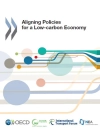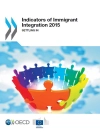International Financial Reporting Standards (IFRS) Workbook and
Guide is a one stop resource for understanding and applying
current International Financial Reporting Standards (IFRS) and
offers:
* Easy-to-understand explanations of all IFRSs/IASs and
IFRICs/SICs issued by the IASB/IASC up to March 2006
* Illustrative examples
* Practical insights
* Worked case studies
* Multiple-choice questions with solutions
Technically reviewed by Liesel Knorr, Secretary General of the
German Accounting Standards Committee and former technical director
of the International Accounting Standards Committee (IASC).
Forewords by:
Sir David Tweedie, Chairman of the International Accounting
Standards Board (IASB)
Philippe Richard, Secretary General of the International
Organization of Securities Commissions (IOSCO)
Tabela de Conteúdo
Chapter 1. Introduction to International Financial Reporting
Standards.
Chapter 2. IASB Framework.
Chapter 3. Presentation of Financial Statements (IAS 1).
Chapter 4. Inventories (IAS 2).
Chapter 5. Cash Flow Statements (IAS 7).
Chapter 6. Accounting Policies, changes in Accounting Estimates
and Errors (IAS 8).
Chapter 7. Events After the Balance Sheet Date (IAS 10).
Chapter 8. Constructing Contracts (IAS 11).
Chapter 9. Income Taxes (IAS 12).
Chapter 10. Segment Reporting (IAS 14).
Chapter 11. Property, Plant, and Equipment (IAS 16).
Chapter 12. Leases (IAS 17).
Chapter 13. Revenue (IAS 18).
Chapter 14. Employee Benefits (IAS 19).
Chapter 15. Assistance (IAS 20).
Chapter 16. The Effects of Changes in Foreign Exchange Rates
(i AS 21).
Chapter 17. Borrowing costs (IAS 23).
Chapter 18. Related Party Disclosure (IAS 24).
Chapter 19. Accounting and Reporting by Retirement Benefit Plans
(IAS 26).
Chapter 20. Consolidated and Separate Financial Statements (IAS
27).
Chapter 21. Investments in Associates (IAS 28).
Chapter 22. Financial Reporting in Hyperinflationary Economies
(IAS 29).
Chapter 23. Disclosures in the Financial Statements of Banks and
Similar Financial Institutions (IAS 30).
Chapter 24. Interests in Joint Ventures (IAS 31).
Chapter 25. Financial Instruments: Presentation (IAS 32).
Chapter 26. Financial Instruments: Recognition and Measurement
(IAS 39).
Chapter 27. Earnings per Share (IAS 33).
Chapter 28. Interim Financial Reporting (IAS 34).
Chapter 29. Impairment of Assets (IAS 36).
Chapter 30. Provision, Contingent Liabilities, and Contingent
Assets (IAS 37).
Chapter 31. Intangible Assets (IAS 38).
Chapter 32. Investment Property (IAS 40).
Chapter 33. Agriculture (IAS 31).
Chapter 34. First-Time Adoption of International Financial
Reporting Standards (IFRS 1).
Chapter 35. Share -Based Payments (IFRS 2).
Chapter 36. Business Combinations (IFRS 3).
Chapter 37. Insurance Contracts (IFRS 4).
Chapter 38. Noncurrent Assets Held for Sale and Discontinued
Operations (IFRS 5).
Chapter 39. Exploration for and Evaluation of Mineral Resources
(IFRS 6).
Chapter 40. Financial Instruments: Disclosures (IFRS 7).
Index.
Sobre o autor
ABBAS ALI MIRZA is a partner with Deloitte & Touche (ME)
based in Dubai. He has had a distinguished career in accounting and
auditing internationally, is a frequent speaker at major global
conferences, and has held many positions of repute in the
accounting profession globally, including Chairman of the 21st
session of the United Nations’ Intergovernmental Working Group of
Experts on International Accounting and Reporting (ISAR) at UNCTAD
in Geneva.
GRAHAM J. HOLT is Principal Lecturer of Accounting and
Finance at the Manchester Metropolitan University Business School
in the United Kingdom. He is coauthor of an IFRS text, contributor
to academic publications, author of professional journal papers,
and examiner for the Association of Chartered Certified Accountants
(ACCA), UK.
MAGNUS ORRELL is in the national office of Deloitte &
Touche LLP in the United States. He specializes in the accounting
for financial instruments under both IFRS and U.S. GAAP and has
extensive international experience of accounting and reporting
issues relating to financial instruments and financial institutions
from his time as project manager for financial instruments at
IASB.












